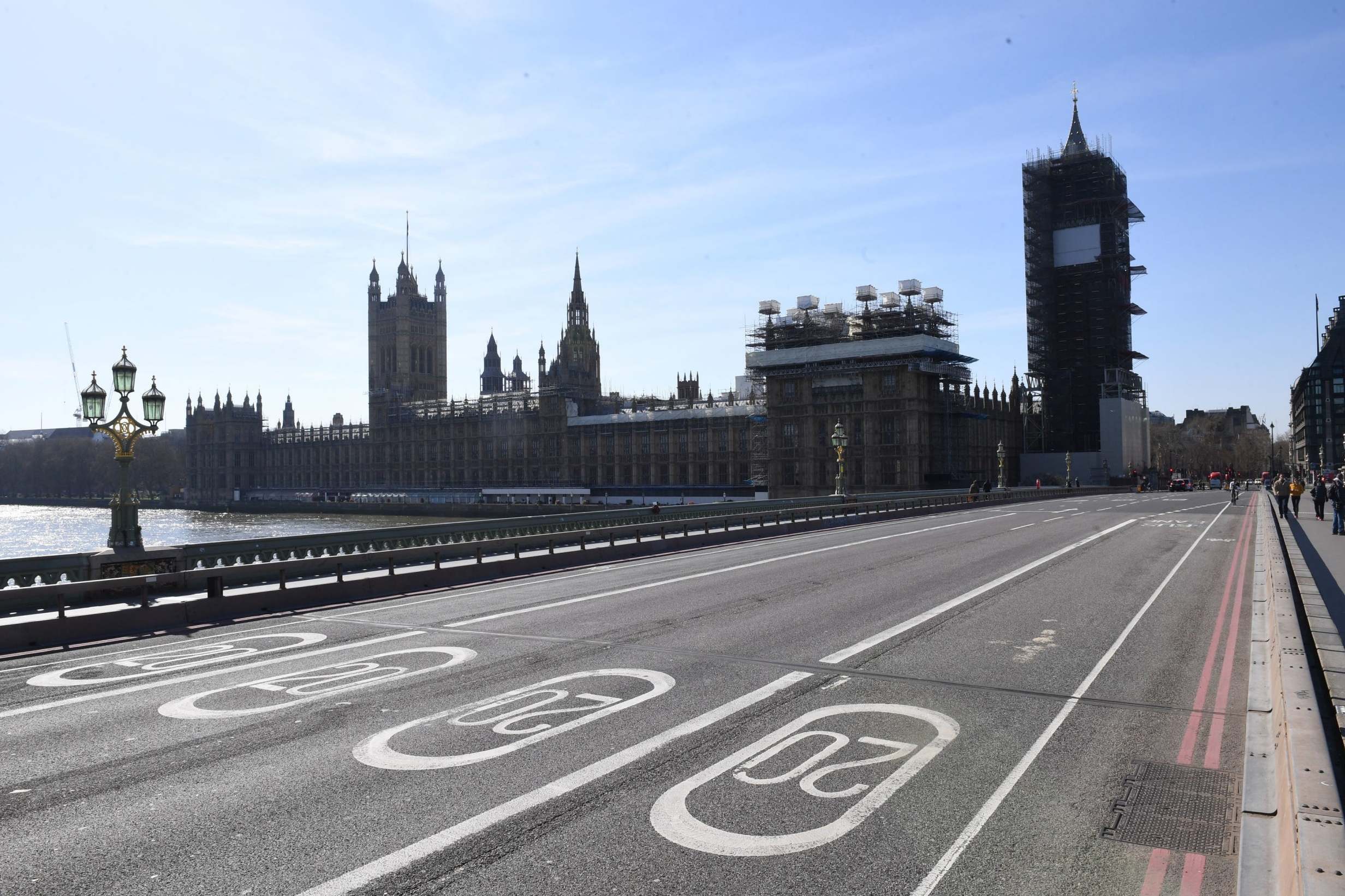Boris Johnson needs to be held accountable during parliament’s shutdown – a virtual PMQs will help
Even if it is an imperfect, truncated form, the Commons must find a way to keep the government honest, writes Andrew Grice


The House of Commons chamber will be silent for four weeks from today, after its Easter recess was brought forward by a week thanks to the coronavirus outbreak.
Some MPs suspect it will not return on schedule on 21 April. Officially, the date will he kept under review, and subject to “medical advice.” We might see the Commons sit for two days a week with reduced numbers of MPs attending.
Boris Johnson will not escape scrutiny as he will continue to hold daily Downing Street press conferences. They are now conducted remotely, which proves that he could and should also conduct a virtual version of prime minister’s questions. If he really wants proper parliamentary scrutiny, as he professes, he would make his long overdue first date with the liaison committee, which is made up of all the select committee chairs. I am not holding my breath.
Parliament is considering how to adapt to the unexpected new world. Hopefully, as a result of this crisis some long overdue reforms like electronic voting will finally emerge (though as a resident of the Westminster village I hope and suspect the ban on alcohol will be temporary).
Crucially, this recess will be different to previous ones: select committees will continue to hold hearings online. We have already seen the health, business and science committees, chaired by Jeremy Hunt, Rachel Reeves and Greg Clark respectively, ask ministers and experts vital questions in real time. Other committees will follow suit. Hopefully Rishi Sunak, the chancellor, will be quizzed about today’s package of financial support for the self-employed; some MPs were frustrated that he avoided making a statement in the Commons chamber.
The committees could really come into their own in the new world, and reach a much wider audience; they should not hesitate to hold ministers to account regularly, especially while they are not appearing at the despatch box.
Lindsay Hoyle, the speaker of the Commons, said MPs could be summoned back to Westminster in an emergency recall if circumstances warranted it. But he made clear his view is that ministers and their officials should be given the space to handle the crisis, so a recall looks unlikely. I suspect his predecessor John Bercow would have taken a different view.
Our much-derided parliament is having a good war so far. Labour has struck the right balance between bipartisan support in a national emergency and retaining the right to criticise the government’s response, without the usual point-scoring. Johnson has rightly made concessions to Labour, such as allowing MPs to renew the emergency powers they approved this week every six months. He is liaising closely with the devolved administrations in Scotland, Wales and Northern Ireland.
Some Tories want to build on this consensus and are warming to the idea of forming a government of national unity, as Johnson’s hero Winston Churchill did in the Second World War. In public, Tories such as the former minister George Freeman believe a cross-party “Covid coalition” and suspension of normal politics would symbolise the country coming together. In private, they hope the move would enable Johnson to maintain public support for a prolonged lockdown – and share the blame if the eventual verdict on the government handling of the crisis were unfavourable.
With Jeremy Corbyn at Labour’s helm, a national unity government was never on the cards. He is instinctively too tribal; his negotiations with Theresa May over a Brexit deal were never going to succeed.
Keir Starmer, Corbyn’s likely successor, might be more open in principle to joining a coalition. It would instantly give him a stature that would otherwise elude an opposition leader during such a crisis. But I doubt such a coalition will happen.
It is better for the country to maintain the present arrangement under which opposition parties can be briefed by ministers and civil servants, and in future perhaps even attend meetings of the Cobra emergency committee. But they should keep their freedom to criticise the government when they judge it right.
Johnson, with so much on his plate, might be quietly pleased that he does not have to prep for prime minister’s questions for at least another month, and answer more awkward questions about when testing kits, ventilators and protective equipment for health workers will arrive. He should face MPs’ questions online in the meantime, and remember how his last attempt to suspend parliament ended.
Even if it is an imperfect, truncated form, the Commons must find a way to hold the government to account at such a critical moment.
Join our commenting forum
Join thought-provoking conversations, follow other Independent readers and see their replies
Comments